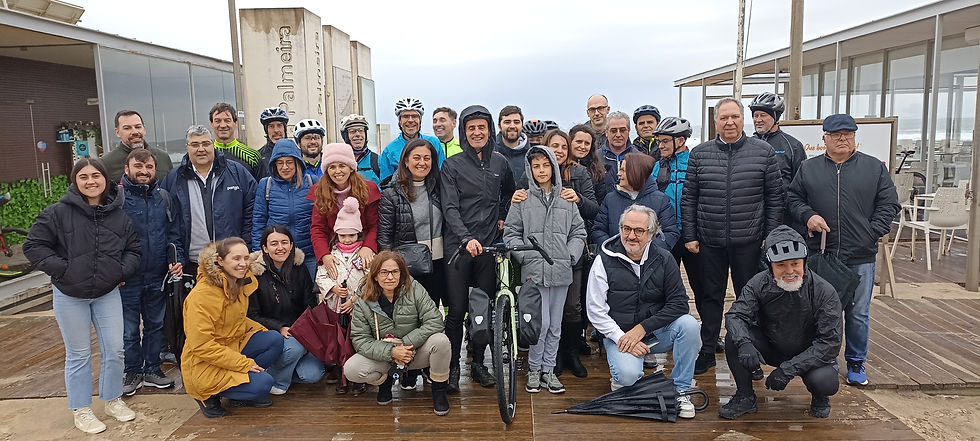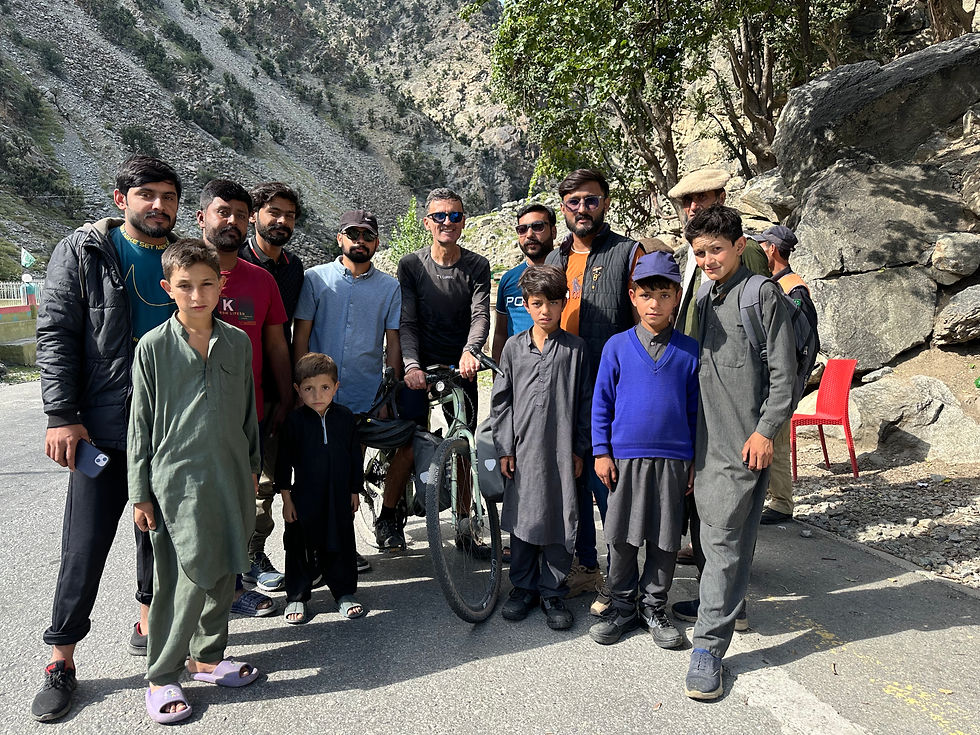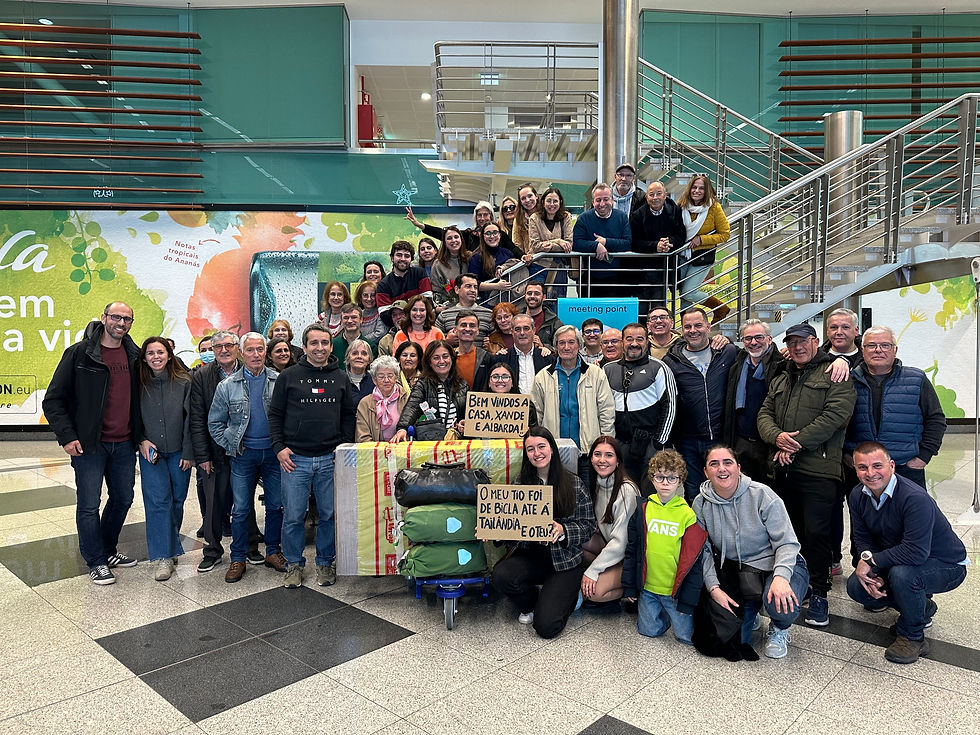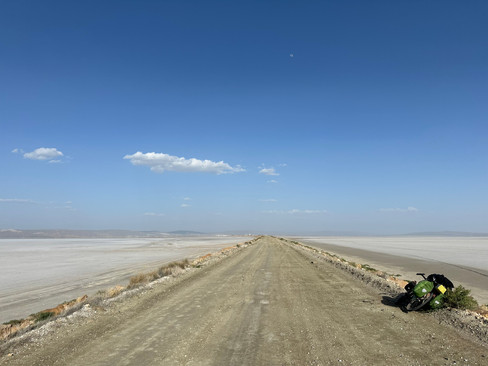
Alexandre Pascoal didn't wake up one day with the idea of cycling across continents. It was a process that built up slowly, a dream that gained strength over time. The desire began to germinate in the lectures and festivals he attended in Aveiro, where he met travellers who had left everything behind to explore the world. He then realised that these people, who he had previously thought were superhuman, were in fact ordinary people, driven by a genuine desire to know and challenge themselves.
The final decision came at the age of 50. A lover of travelling and bicycles, healthy and with no dietary restrictions, he realised that he was ready to leave. But fear of the unknown still held him back. It took another year before he plucked up the courage to ask for unpaid leave from work and set off into the world. In December, he received confirmation: his request had been accepted. The year 2024 would be his, with no professional obligations, just the road, adventure and a dream to fulfil.
The farewell was marked by emotion and uncertainty. His family, despite their concern, had no choice but to support him. They knew that Alexandre's passion and enthusiasm were genuine and that it would be impossible to stop him. To reassure those who remained, he decided to write a travel diary, sharing each stage and showing that he was fine, which is available to read in detail at https://345dias.com.
The first few days were a mixture of excitement and challenge. My body, although used to physical activity, still needed to adapt to the intense routine of the road. Accustomed to running and mountain biking on the trails of Matosinhos, I had been training for years without knowing it for this trip. But physical endurance wasn't the only obstacle - there was also abandoning comfort and adapting to a nomadic lifestyle, where every day was an unknown.
Over the months, Alexandre travelled through 19 countries, 16 of them by bicycle. He trusted in the kindness of people and, despite his initial fears, he never had a bad experience. He slept wherever possible, in lodgings or small hotels, sometimes using his tent and sleeping bag. He was often taken in by strangers who saw him as a tired traveller and offered him shelter and food.

It was in the Middle East that he had some of his most remarkable experiences. Countries often portrayed as dangerous turned out to be full of generous people who didn't hesitate to share what little they had. They invited him to tea, offered food and even money, concerned for his well-being. In Iran, a humble man used a translator to invite him to sleep in his house, assuring him that he didn't have much to offer other than a secure roof over his head. This gesture deeply touched Alexander, who would never forget the hospitality and warmth he encountered along the way.
Not everything was easy. There were moments of extreme exhaustion, whole days without speaking to anyone, nights when uncertainty was the only company. The psychological challenge was as intense as the physical one. And then came the worst moment: a car crash that left him lying on the road, without the driver even stopping. He got up, assessed the damage and continued on his way, but the next day he realised something was wrong. At the hospital, the news: an incomplete fracture of the collarbone. There, he felt the weight of frustration. He cried. The bike was stopped, the journey interrupted.
But giving up was never an option. Instead of returning home, Alexandre found an alternative. He left his bicycle behind and travelled by train through Laos and Vietnam, exploring new cultures and meeting fascinating people. In Vietnam, he was inspired by the resilience of a people who had faced wars and destruction, but who continued to smile and welcome foreigners with kindness. It gave him the strength to carry on.
When he finally arrived in Ho Chi Minh (Vietnam), there was no great celebration. There were no crowds, no flags, no cinematic moment. But there was a sense of mission accomplished, of inner transformation.
Returning home brought a shock of reality. Alexandre realised that he no longer saw the world in the same way. He sold his car before the trip, took the metro and approached traffic differently. Impatience and urban stress now seemed irrelevant when compared to the real difficulties he experienced along the way.
The first thing she did on her return was hug her sister. She missed her family, her friends and the sea. He couldn't remember a year without diving in the waters of Matosinhos, and Portuguese food, especially cod, had a special flavour on his return.
Alexandre Pascoal still doesn't know what his next destination will be. Perhaps a shorter journey, perhaps something completely different. But one thing is certain: the road has taught him that limits are illusory, that human hospitality has no boundaries and that the greatest adventure of all is simply moving forward, one kilometre at a time.





